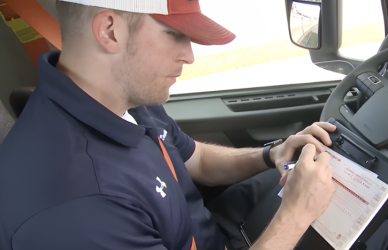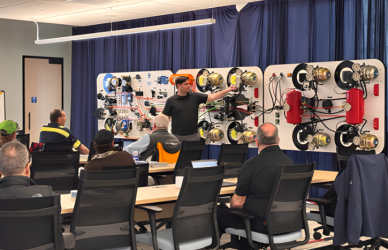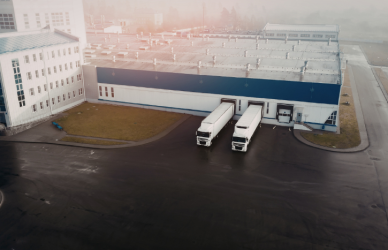In a significant shift, Waymo Via, the autonomous trucking arm of Alphabet Inc., has decided to indefinitely delay most of its work on autonomous trucking. The company’s new focus will be on developing and expanding its fleet of robot-driven passenger cars for ride-hailing services.
This move makes Waymo Via the latest player to step back from the increasingly competitive field of autonomous trucking developers. Rumors about Waymo’s future in trucking had been circulating since the company faced layoffs of 12,000 employees in January. Although Waymo Via had been operating on a limited scale since March, further layoffs in March brought the total job cuts to 8% of its workforce.
The exact number of jobs affected by this recent decision remains unknown. However, it is clear that Waymo Via is redirecting its resources towards the promising potential of self-driving passenger cars.
“A very limited number of roles solely focused on trucking were impacted,” a Waymo spokesperson said in an email Wednesday. “We were able to transition many individuals into other roles at the company that are a fit for their skill set.”
Waymo expanded its lineup to include trucks in March 2020. This addition built upon Waymo’s rebranding of the Google self-driving car project in 2016. By utilizing a system that allows for the sharing of technology between surface streets and highways, Waymo has made significant advancements in both areas of autonomy.
“Given the tremendous momentum and substantial commercial opportunity we’re seeing on the ride-hailing front, we’ve made the decision to focus our efforts and investment on ride-hailing,” Waymo co-CEOs Tekedra Mawakana and Dmitri Dolgov wrote in a recent blog post.
“With our decision to focus on ride-hailing, we’ll push back the timeline on our commercial and operational efforts on trucking, as well as most of our technical development on that business unit.”
Recently, there has been a lot of activity in the autonomous trucking industry. Just last week, rival company Aurora Innovation raised $820 million in funding, with Uber as their biggest investor.
The landscape of this industry is rapidly changing, however. In March, Embark Trucks faced a significant setback and was eventually sold in May. On June 28th, TuSimple made the decision to explore a potential sale of its U.S. operations. As a result, only three players remain in this once-crowded field: Aurora, Torc Robotics, and Kodiak Robotics.
Despite the changes, Waymo has reaffirmed its commitment to collaborate with Daimler Truck on backup chassis for Waymo Driver system. Redundant features like steering and braking are essential in a driverless truck to ensure seamless operation and safety.
“We continue to see a significant future commercial opportunity for our trucking solution alongside other commercial applications of the Waymo Driver,” Mawakana and Dolgov wrote.
Waymo receives ongoing support from Daimler Truck, despite a lack of recent activity. According to CEO Martin Daum, Waymo and Torc, which Daimler acquired in March 2019, are the top contenders in the autonomous trucking industry.
“We are well on our way to developing the redundant, autonomous-ready Freightliner Cascadia as a platform for various virtual driver systems,” a Daimler spokesperson said in a recent email to FreightWaves.
“Over the years, we’ve consistently emphasized that autonomous truck development is not a race, but a marathon, and we respect Waymo’s decision to adjust its own timeline. As they shift their focus to ride hailing, we continue to work with our strategic partner Waymo to advance the technical development of the autonomous truck platform.”
Source: FreightWaves











